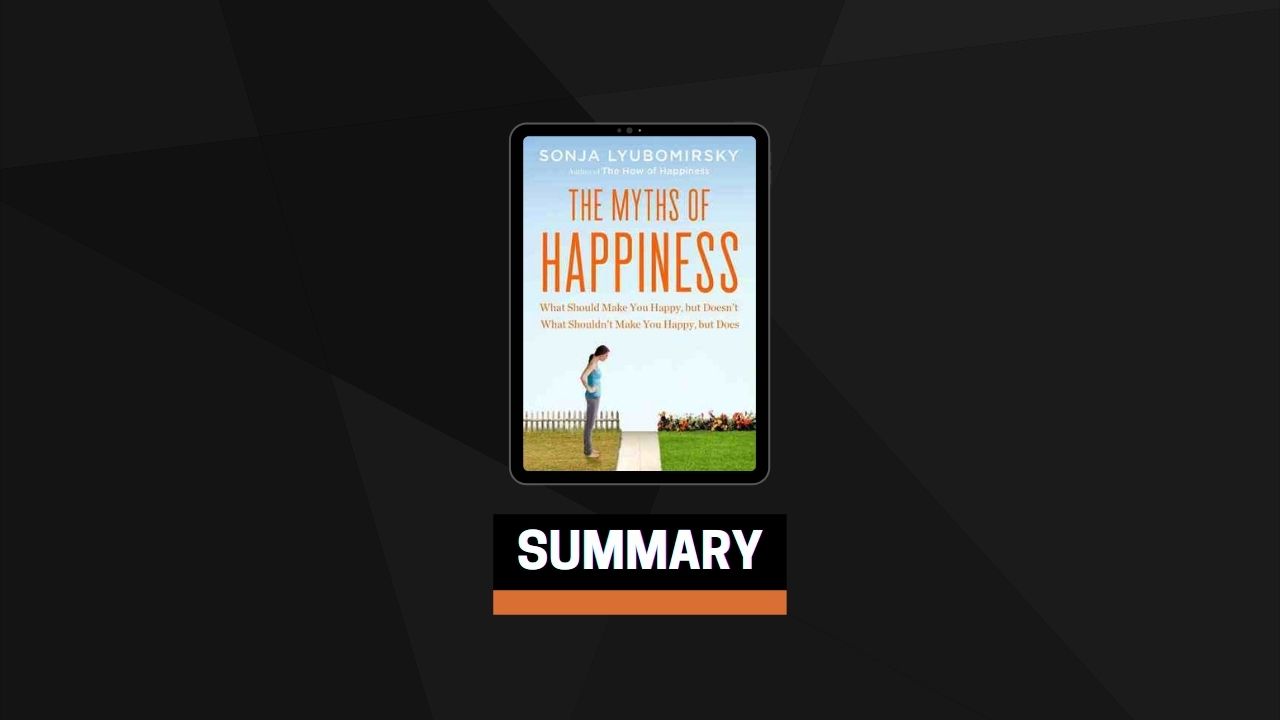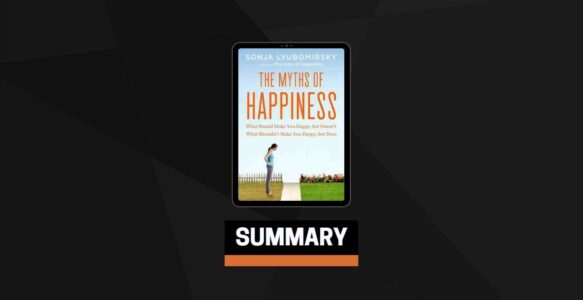I’ll Be Happy When . . . I’m Married to the Right Person
Perhaps you thought that you had it all figured out. You found “the one,” you married, you were happy. With time, however, the returns stopped being so high. You began having qualms and discontents, then whispers of apathy and dullness, and yearnings for something more. The realization that your marriage is no longer making you happy is not the end of the road, and neither is it the beginning.
many of you, the first reaction to the feeling that you’re bored and unhappy is to conclude that there must be something wrong with you or your relationship and to assign blame. Your “first thought” is that if your marriage doesn’t fulfill all your needs for intimacy, passion, and companionship, then you (or you partner) have failed. Before you can understand what type of change is possible and what is not, you need to push forward past those first thoughts and heed your second thoughts. This more reason-based perspective involves learning about hedonic adaptation. Gaining an awareness of the ubiquity of this phenomenon may lead you to acknowledge that your marital grievances are natural and commonplace, thereby exonerating both your spouse and yourself, and to take steps to slow down the adaptation process. At that point, you may come to a more positive outlook for your relationship. The optimal course of action is to begin practicing adaptation-thwarting and relationship-building strategies as soon as possible. Which strategy to begin with will depend on your preferences, resources, and needs. Some may initiate mobilizing efforts to inject excitement, novelty, variety, and/or surprise into their marriage. Others may choose to convey appreciation for their relationship, help bring out the best person their partner can be, or respond more enthusiastically when that partner succeeds. Inside and outside the bedroom, you may opt to shift your goals to a more positively oriented “approach” mode or to touch more frequently and regularly.
I Can’t Be Happy When . . . My Relationship Has Fallen Apart
The moment of truth that involves the possibility of leaving or staying in a relationship is one of the most difficult to confront and grapple with. You have the choice to leave. You have the choice to stay and make the best of the lot you’re dealt. You have the choice to stay and resolve to improve your partnership.
sometimes a divorce fantasy is just that—a daydream that allows you to discharge your anger and distress before you return to the work of caring for your marriage. But other times divorce fantasies are harbingers of what’s to come. In that case, the sooner you consider the research (e.g., that divorce does not irreparably harm most children), the sooner you will be prepared to make a decision based on reason rather than intuition (the notion that you can’t leave no matter how unhappy you are).
Above all, before making any pivotal decision, you need to consider how much of your marital unhappiness is due to you, how much of it is due to your spouse, how much of it is due to dynamics within your marriage, and how much of it is due to circumstances beyond your control. Such understanding may not change your ultimate decision, but it will influence what element of your marriage or your life you should seek to change. Knowing that this happiness myth is wrong—that your life won’t end when your relationship does—opens up new roads and new positive possibilities for how to enact that change.
I’ll Be Happy When . . . I Have Kids
If you subscribe to the myth that you can’t be truly happy without children, then learning that you don’t love parenting—or that it’s much more punishing and unpleasant than you expected—can precipitate a crisis moment in your life.
The very first thought that came to mind when you realized that you didn’t enjoy being a parent was a version of “I must be a bad person.” The problem is that this first thought is not only toxic to your happiness and to the quality of your parenting, it is plainly wrong. Learning what the research has to say about the ordinariness of this feeling and, hence, the falsity of your beliefs about how much joy your children will bring, will go a long way toward making you feel that you are not alone. Considering a big-picture view of parenting, reflecting on which situations impact your happiness the most, maintaining your balance through journaling, and taking time off from parenting will fortify you with the resolve to weather the low points of child rearing and empower you to revel in the high points. For, when all is said and done, “To the world you may be just one person, but to one person you may be the world.”
I Can’t Be Happy When . . . I Don’t Have a Partner
The “I’m alone and feel that I always will be” crisis point is undeniably painful for many individuals. If you find yourself at this crossroads, you have the choice to continue to brood about your situation and to remain miserable in it. Alternatively, you can do something proactive about it—strive to flourish as an individual and stay open to the possibility for connection. Or you may discover that you don’t need a man (or woman) to make you happy. If your first thought is, “I’ll never be happy alone” or “I’m a loser,” consider whether your desire to get married is authentically yours or whether it’s dictated by your family or the larger culture. Research shows convincingly that married people are no happier than single ones, and that singles have been found to enjoy great happiness and meaning in other relationships and pursuits. If you don’t like your single life, change it. If you can’t or won’t change your life, change the way you think about it. If truth be told, the happiness myth that you can only be happy with a partner is as powerful as it is wrong. Knowing this should give you pause—and hope—and open up new avenues and prospects.
I’ll Be Happy When . . . I Find the Right Job
If we have lived our life with the belief that winning the perfect job will bring a lifetime of happiness, it can be deeply distressing to learn that once that job is ours, the resulting happiness is not as great, or as enduring, as we imagined it to be. In other words, at the root of this happiness myth is the misconception that, although we’re not happy now, we’ll surely be happy when we make partner at our firm, when we’re managing our own projects, when we land our first gallery exhibition, when we sell our screenplay, when we’re running our own store, or when we win the Nobel Prize. We encounter a problem, however, when acquiring that seemingly perfect job doesn’t make us as happy as we expected and when that happiness is ever so brief. What explains this unwelcome experience is the inexorable process of hedonic adaptation. Hence, a critical first step is to understand that everyone becomes habituated to the novelty, excitement, and challenges of a new job or venture. This new awareness will suggest to us an alternative explanation for our occupational malaise. To wit, there may be nothing wrong with the job or with our motivation or with our work ethic. The fact may be that we are simply experiencing a naturally occurring, all-too-human process.
The second step is to understand what it is that we can proactively do to slow down or even reverse the process of getting progressively bored with our jobs, and to start practicing the relevant strategies as soon as possible. If such efforts are ultimately futile, if the job is truly substandard, or if the work is a poor fit for our preferences and abilities, then we’ll be more confident that moving on is a decision we have made with a prepared mind—that is, one based on reasoned analysis and effort, not on emotion-based gut instinct.
Alternatively, we may find ourselves deeply discontented because we are not at the point in our professional lives today that we thought we would be. Yet the message of this chapter is that if we want success—recognition, authority, rewards—because we think our happiness depends on it, we are limiting our happiness now and jeopardizing it in the future. The reason comes from a storm of research, which fortunately (or unfortunately) can be summarized with a cliché: “Happiness does not come from outside of us; it dwells within.” As trite as this statement might seem, sometimes a truth is disguised as a truism. We may genuinely bemoan the fact that we have not yet attained this or that (while our friends have), and this bemoaning genuinely makes us unhappy, but the attainment of this or that is not the answer to our unhappiness. Distracting ourselves from toxic comparisons, concentrating on our own internal standards, and focusing on the journey in pursuit of our dreams, rather than on the end result, will redirect our attention and energies from the “I’ll be happy when ____” mentality and toward more fruitful horizons.
I Can’t Be Happy When . . . the Best Years of My Life Are Over
The crossroads we confront as we approach middle age and beyond involves no less a choice than that between decline and flourishing. This is a time when it often dawns on us that the best years of our lives are over. At that point, we have a decision to make—to remain stuck in idealizations of the past, thus deflating and jeopardizing our future goals, or to shift our mind’s eye to the future. An important theme of this book is not to heed our first thought or immediate gut response (e.g., “I’m terrified of getting old” or “So be it—I’ll be plagued by this feeling forever”), but instead to consider the research that explodes our myths about aging. Then we can begin to practice the healthier, more optimal responses.
Whereas our gut might question the point of us carrying on with sustained enthusiasm, our reasoned “second thoughts” should inform us otherwise. The science spotlights the good news—namely, that the older we are, the happier and emotionally wiser we are, and that the second half of life can be an exciting time of challenge, joy, and growth. Indeed, nearly all the recommendations in this book can be regarded as part of the wisdom and prepared minds that older people already have. Thus, all of us can obtain the benefits of aging before we ourselves actually age.
To accomplish this, we have a range of options—a variety of goals we can pursue and numerous lines we can draw to the future. So, instead of listening to your first thought, listen to the second one: “Sure, I’ve had joys, passions, and triumphs in the past, but, in the future, so much more awaits.” Or perhaps the third one, which might mean accepting a loss in one domain, but transitioning to another: “It’s true, my childbearing years (or running years or college years) are over, but a new chapter has begun.” Henceforth, we will greet middle and old age with a prepared mind.


